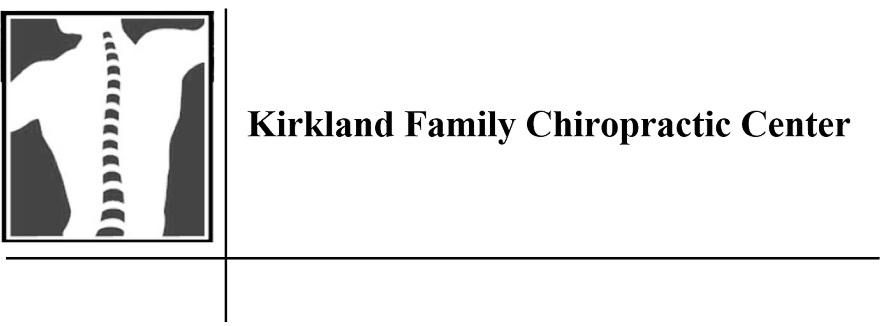January

Inspiration and support for a happy,healthy and successful new year! 2023
Hot tea is widely consumed across the globe, and that could be paying healthy dividends for the billions of people who look forward to their daily cup each day. A small study published in the Journal of Hypertension found that drinking black tea could improve cardiovascular function. A separate study also found that drinking black tea and green tea could decrease risk of stroke and coronary heart disease. Black tea drinkers should keep in mind that, unlike most teas, black tea is caffeinated, so moderation is best to ensure the benefits of black tea are not offset by the overconsumption of caffeine.




2 Resolutions | January 2023
WE ARE HERE FOR YOU Email: heartland1254@gmail.com www.heartlandrealty.info
to combat seasonal affective disorder
YOU Know? Healthcare is moving away from the hospital and more towards the
Dos and don’ts of healthy weight loss Habits that affect cognitive health What to do after being diagnosed with high blood pressure How to avoid repetitive strain injuries Strategies to improve your ability to focus 4 5 6 7 8 9 11
815-288-4648
How
Did
HOME?
Did you know?










































































































































































3 Resolutions | January 2023 ,
The common cold is synonymous with times of year when temperatures dip. When people spend more time indoors, they’re more vulnerable to contagious cold viruses. But the common cold is not the only health issue that presents itself most often when the mercury drops.
Seasonal affective disorder, also known as “SAD,” affects millions of people every year. The National Institute of Mental Health notes that SAD is a type of depression characterized by its recurrent seasonal pattern. Symptoms of SAD, which can include nearly daily and day-long feelings of depression, changes in appetite or weight and feelings of lower energy, last around four to five months.
Researchers are unsure about the exact cause of SAD, but in most people, its onset is believed to be connected to the reduction in hours of sunlight during the winter. (WebMD notes that around 10 percent of people with SAD get it in the reverse, experiencing symptoms of depression at the onset of summer as opposed to winter.) Despite uncertainty about the causes of SAD, the NIMH notes there are ways to treat the condition. And it might benefit people who have experienced SAD to begin treatment prior to winter, as NIMH notes treatments that begin before fall could help to prevent or reduce the depression associated with the condition.
Individuals who suspect they have SAD should relay their concerns to their health care provider, who will then ask patients to fill out a questionnaire to determine if symptoms meet the criteria for SAD. If such a diagnosis is confirmed, individuals may be presented with any of the following treatment options.
LIGHT THERAPY
The NIMH notes that light therapy has been used to treat SAD since the 1980s. The crux of light therapy is to expose individuals with SAD to bright light every day with the hope that such exposure can serve as a stand-in for natural sunlight. Individuals
undergoing light therapy typically begin their day sitting in front of a very bright light box for around 30 to 45 minutes. The boxes filter out potentially harmful UV light, but alternative therapies may be recommended for individuals with certain eye diseases or those taking particular medications .
PSYCHOTHERAPY
According to the NIMH, cognitive behavioral therapy (CBT) has been adapted to help treat people with SAD. CBT is a type of talk therapy, and CBT-SAD typically entails two weekly group sessions for six weeks. These sessions focus on replacing negative thoughts related to winter with more positive thoughts. The therapy also tries to help individuals identify and schedule pleasant, engaging indoor or outdoor activities. The NIMH notes that researchers’ comparison of CBT-SAD with light therapy found both treatments were effective at improving SAD symptoms.
MEDICATIONS
Doctors may recommend patients with SAD take medications known as selective serotonin reuptake inhibitors, or SSRIs. Various types of depression have been found to disturb serotonin activity, and SAD is no exception. SSRIs have been proven to effectively improve patients’ moods, but it’s important that individuals discuss the side effects of SSRIs with their physicians prior to taking medication.
Vitamin D has been linked to improving symptoms of SAD, but the NIMH notes this is a misconception, as the research regarding vitamin D supplementation as a treatment for SAD has thus far produced mixed results.
Individuals who suspect they may have SAD are urged to speak with their physicians so they can overcome this often treatable condition.

4 Resolutions | January 2023
How to combat seasonal affective disorder Therapy is a treatment option for individuals diagnosed with SAD.
Did YOU Know? Healthcare is moving away from the hospital and more towards the HOME?
Q: What kinds of medical care is moving to the HOME?
A: Medical Supplies – Purchase mobility equipment and receive Education for your supplies in the comfort of your home. Nonmedical – personal care, companionship and meal prep. Medical – Medicine pass, shower aide. Skilled – Wound, Ventilator, and Trache care, Tube feeding and Ostomy care. Home Health – Short term clinical wound care, PT/OT, Speech Therapy. All Ages may qualify.
Q: Why is home care so POPULAR?
A: People prefer to stay at home to heal from surgery or sickness, and for rehab while recovering from surgery or a fall. Family members want to make sure they are safe and can continue their quality of life while maintaining independence. Trained caregivers are a blessing when the patient wants to stay home.
Q: Will my PROVIDER encourage me to be treated in my home?
A: Most Providers who work with home care agencies have seen that an “extra set of eyes” helps their patients stay out of the hospital. The Provider and home care Staff become a Care Plan Team to help the patient together.
Q: How can I CHOOSE THE RIGHT home care agency?
A: An agency who understands your needs will suggest and provide a Complete Solution, saving the family from the struggle of coordinating care. They will understand if the skill required is medical or non-medical, and be able to cover your scheduling needs. Staff should understand medical equipment and supplies and know how to use them.
Q: What requirements will my Insurance Company have for the CARE?
A: Each Payor – whether Insurance, Medicare, Medicaid, VA, Long Term Care Insurance, or Private Pay– has policies. An experienced LOCAL home care company will make insurance calls for you for service verifications – for skilled, non-skilled care, and supplies.. Choose a LOCAL solution who can understand & manage your needs.and simplify scheduling.
Q: I have RESPIRATORY needs. Are those covered?
A: Your local Medical Supply Store may have items in stock, or available for order. They will coordinate with your Provider to deliver your supplies.
Q: Where can I get MOBILITY supplies and good CUSTOMER SUPPORT?
A: Most wheelchairs, power chairs and scooters, canes, and walkers need to be specifically sized to fit appropriately. Your local supplier may have options that meet your needs. A specialist should be able to match your Provider’s prescription/order with the best equipment for you and will train you to use it appropriately.
Q: I am a new patient. Where can I learn how to use OSTOMY or CPAP supplies?

A: New medical supplies come with new challenges. How does this work? How do I clean my CPAP? Your local Medical Supply Store may have classes for education while you adjust to a “new normal”. Also, a medical supply store partnering with home health can
provide additional support for new OSTOMY patients care at home.
Q: What are the QUALIFICATIONS of caregivers, and how are they chosen?
A: Most licensed home-caregivers prefer the schedule and flexibility of in-home care, compared to working for a facility. Home care offers specific employee benefits. Every effort is made to get the “right fit” of personality and skills in the home. Supervisory visits assure a high level of accountability.


Q: I have TRANSPORTATION needs. Where can I find a driver?
A: Local home care agencies may employ trusted staff to provide the travel freedom and flexible schedule for you to attend your appointments. These staff should also be able to help in the home with care-giving.
Q: I’d like a CAREGIVING break. Who does RESPITE care?
A: A specialized local home care agency provides caregivers for a partial day, up to 24 hours per day of care so you can take a break. Trained caregivers should be well-acquainted with unique needs of Alzheimer’s/Dementia, diabetes, COPD, etc, and should give you peace of mind while you are getting some “me time”.
Q: Who can I call to help me GET STARTED with in-home care?
A: An experienced local home care agency will have ONE point of contact…no calling multiple times for answers. Reach out with your questions, and take it one step at a time.
5 Resolutions | January 2023 FREE In Home Consulting 5 % Discoun off Cash Purchase from Home Medical Equipment & Supplies HOME NURSING | HOME HEALTH MEDICAL SUPPLIES SM-ST2044882
Dos and don’ts of HEALTHY weight loss
Maintaining a healthy weight promotes long-term health. Being overweight or obese are risk factors for various conditions, including type 2 diabetes and cardiovascular disease. The World Health Organization reports that the worldwide obesity rate has tripled since 1975. In 2016, more than 1.9 billion adults were overweight. Of these, more than 650 million were obese. Health issues related to obesity are largely preventable. Losing weight in a healthy manner is essential for safe and lasting results. Individuals aspiring to lose weight can follow these guidelines on what to do and what not to do.
DO add lean protein sources to your diet. Healthline indicates the body burns calories when digesting and metabolizing protein, so a high-protein diet can help to shed up to 80 to 100 calories per day. Protein also helps you to feel full, reducing the propensity to overeat.
DON’T get hung up on numbers early on. The Centers for Disease Control and Prevention advises that even modest weight loss of 5 to 10 percent of your total body weight is bound to produce health benefits, such as improvements in blood sugar levels, cholesterol and blood pressure. Start small and gradually build up.
DO eat at least four servings of vegetables and three servings of fruits daily. Produce contains an abundance of vital nutrients and is often fiber-rich and low in calories, which helps you to feel full.
DON’T overlook the impact of beverages on weight loss. The calories in sugary beverages, including some all-natural fruit juices, can add up quickly. Stick to water, tea or other unsweetened beverages to help with weight loss.
DO get moving more. The Mayo Clinic notes that while it is possible to lose weight without exercise, getting moving can help burn off the excess calories you can’t cut through diet alone.
Exercise boosts metabolism and benefits mood and strengthens muscles and the cardiovascular system as well.
DON’T go shopping while hungry. If you do, you may make impulse buys that compromise healthy eating plans.
DO speak with a doctor if you are vetting diet and exercise plans. A healthcare professional can assist you by indicating if a particular diet or fitness routine is acceptable for your age, goals and current health status.


DON’T forget to track eating. Most healthy diets involve some sort of calorie-counting, whether they actually require you to document your intake or use a formula to attribute “points” or another measure related to what you eat. Writing or tracking the foods and beverages you consume will provide the most honest assessment of habits that could affect weight loss.


DO include foods you enjoy. Completely restricting access to occasional treats may cause you to resent healthy eating, which can derail weight loss goals. The principle of moderation can apply to healthy weight loss as long as you account for the more caloriedense foods.
Losing weight in a healthy manner is achievable when you seek guidance and follow some time-tested techniques.
6 Resolutions | January 2023 DixonYMCA.org 110NGalena Ave•(815)288-9622 JOIN TODAY! DISCOVER YOURY
The World Health Organization reports that the worldwide obesity rate has tripled since 1975.
Various changes to appearance and health are associated with aging. Issues such as diminished vision, waning muscle strength and gray hairs are among the more common and noticeable side effects of aging. Cognitive decline is another symptom often associated with aging, even if that needn’t be the case.
Certain lifestyle choices can protect against cognitive decline and dementias. While there is no surefire way to prevent dementias, here are some good habits for maintaining cognitive function well into your golden years.
EXERCISE FREQUENTLY
Harvard Health reports that exercise, in addition to the many other benefits it provides, may help improve cognitive function in people who have already experienced memory issues. Exercise may be particularly advantageous to people who carry the APOE4 gene variant, which makes people more susceptible to Alzheimer’s. Speak with a doctor about how much exercise is needed and what is safe for your age.
ENJOY VIDEO GAMES
Playing a favorite video game may improve long-term cognitive function. Researchers at Cambridge Brain Sciences found study participants who played non-cognitive-training video games were associated with better performance in several cognitive domains, but only for younger (age 18 to 64) participants. Cognitive training games, on the other hand, were not associated with any cognitive improvement.

STAY SOCIALLY ENGAGED
According to a study published in the journal Experimental Aging Research, seniors who have high levels of social engagement also have better cognitive function. Getting together with friends, participating in a club, attending religious studies, and any other activity that gets you out with other people can help with cognitive function.

EAT A HEALTHY DIET
Eating a diverse array of healthy foods is beneficial. Nutritious diets can help reduce the risk for illnesses that may affect cognitive ability. Eating well also helps keep the brain healthy. A Mediterranean diet appears to lower the risk or slow the

Habits that affect cognitive health
progression of dementia in people who have the condition.
GET HELP FOR SLEEP DISORDERS
Lack of sleep can affect memory and learning. By getting help for sleep disorders, you may reduce your risk for cognitive issues. While it is not possible to prevent or cure cognitive conditions like dementias with lifestyle changes, certain behaviors can lower the risk of developing these illnesses or reduce their severity.
7 Resolutions | January 2023 PURE.REAL.FOOD. Made by us - Standing by our belief that food should contain nothing but...FOOD! Grab and Go Locations: Oliver's Corner Market, Dixon Coffee Crush, Dixon Hazel's Cafe, Oregon Benny's Corner Market, Rochelle YMCA, Sterling-Rock Falls Owner: Alex Oliver Call or email for more information 815-973-5635 olivenutchc@gmail.com Direct pick-up from OLIVE NUT @120 N. Peoria Ave. Dixon (Pre-Order only)
What to do after being diagnosed with high blood pressure
Hypertension, a condition marked by abnormally high blood pressure, is more common than many people may recognize. A 2021 report from the U.S. Department of Health and Human Services indicated that nearly half of adults in the United States, or roughly 116 million people, have hypertension. And hypertension isn’t exclusive to Americans, as the World Health Organization notes that the number of people living with the condition has doubled to 1.28 billion since 1990.
Despite its prevalence, hypertension is not normal, nor is it something to take lightly. In fact, the American Heart Association notes that, if left undetected or uncontrolled, hypertension can lead to an assortment of serious, and potentially deadly, conditions, including heart attack, stroke, heart failure, and kidney disease.

Since the threat posed by high blood pressure is so significant, it’s imperative that individuals know what to do upon being diagnosed with hypertension. The AHA notes that individuals diagnosed with hypertension can try various strategies to get their number down to a normal, healthy range.


• Eat a healthy, low-salt diet. A diet that’s rich in fruits, vegetables, whole grains, low-fat dairy products, skinless poultry and fish, nuts and legumes, and non-tropical vegetable oils ensures people are getting ample nutrition from healthy sources. The DASH (Dietary Approaches to Stop Hypertension) eating plan is designed specifically to help people manage their blood pressure and emphasizes limiting salt, red meat and foods with added sugars, including sweets and sugary beverages. It’s important that all people, and especially those with high blood pressure, limit their salt intake, as sodium is known to increase blood pressure.
• Avoid excessive alcohol consumption. The AHA notes that excessive alcohol consumption can raise blood pressure. In addition, despite what popular misconceptions may suggest, there is no evidence to suggest that red wine consumption is good for heart health. Like other alcoholic beverages, red wine should be consumed in moderation, if at all. The AHA urges individuals to limit their alcohol intake to no more than two drinks per day for men and no one more than one drink per day for women.
• Exercise regularly. Routine exercise benefits the heart in myriad ways, including helping people control high blood pressure. Individuals recently diagnosed with high blood pressure who are unaccustomed to physical activity should work with their physicians and a personal trainer to design an exercise regimen that’s within their abilities. As their bodies get used to increased physical activity, people can then work with the same individuals to tweak their routines so they can keep making progress toward their fitness goals. Routine exercise also helps to reduce stress, which the AHA notes is another step people with hypertension should take to lower their blood pressure.
• Shed extra weight. Each of the aforementioned strategies can help people shed extra weight, which is another step the AHA recommends for people with high blood pressure. The AHA notes that losing as few as 10 pounds can help to manage high blood pressure. Maintaining a healthy weight also reduces strain on the heart, thus lowering the risk for high blood pressure and the conditions that can arise from it.


More than 1.2 billion people across the globe are currently living with high blood pressure. Taking steps to reduce hypertension is a great way to promote long-term health and overcome this often silent killer.

8 Resolutions | January 2023 (815) 677-9492 107 S Hennepin Ave, Downtown Dixon SM-ST2042886
How to avoid repetitive strain injuries


Repetitive strain injuries can upset workflow and compromise exercise routines. Though such injuries are often characterized as nuisances, for many people they’re much more than a minor inconvenience.

Data from the Occupational Safety and Health Administration indicates that repetitive strain injuries (RSI) affect roughly 1.8 million workers in the United States each year. Such injuries are common across the globe, as researchers in Sweden estimate that roughly one in 50 workers is suffering from the symptoms of RSI. These injuries also are not limited to adults, with one study from researchers at Australia’s University of Technology finding that 60 percent of children suffered discomfort when using a laptop.
The Cleveland Clinic notes that RSI most commonly affect certain parts of the body, including:


• fingers and thumbs
• wrists
• elbows

• arms
• shoulders



• knees



These areas of the body are vulnerable when people routinely engage in activities in which they repeat the same motions. For example, office workers who spend eight hours a day typing away at their computers may develop RSI in their fingers, thumbs, wrists, and/or elbows. Such workers need their jobs, so what are they and others who suffer work-related RSI to do? Prevention of RSI is not always so easy, but individuals can try various strategies to reduce their risk of developing RSI.
• Make adjustments to your workstation. Individuals whose RSI are a byproduct of sitting at a desk and working on a computer all day long can adjust their workstations to see if this helps reduce strains. For example, a keyboard wrist rest is an inexpensive accessory that can be placed between users and their keyboards to keep their wrists in a neutral position and alleviate wrist pain that results from typing all day. Mouse rest pads serve a similar function and can be equally effective. A keyboard and mouse pad should be low enough to allow users to relax their shoulders.
• Consider replacing your desk and/or chair. Desks and chairs also could increase risk for RSI if it they are not compatible. Office workers should be able to pull their chairs beneath their desk when they’re sitting and working. If the desk is too small or low to the ground to allow that, or if the chair is not adjustable so it can be pulled up to the edge of the desk while working, workers’ posture could suffer, as they will be forced to lean into their desk and narrow their shoulders when typing. The Cleveland Clinic notes that improving posture helps people avoid putting extra stress on their bodies that can contribute to RSI.
• Get up and walk around. Prolonged periods of sitting can
increase the risk of RSI. Sitting at a desk all day long without taking routine breaks means those parts of your body vulnerable to RSI, such as the wrists, elbows and shoulders, are not moving all day. The strain that puts on these parts of the body increases RSI risk, which underscores the importance of taking routine breaks.
• Stretch before sitting down. Stretching may be something associated with a workout routine, but the principles of stretching also apply to sitting at a desk. Exercise enthusiasts stretch to loosen and protect their muscles and tendons from injury, and the same idea can safeguard office workers as well. Some simple stretches throughout the day can keep muscles and tendons in the hands, elbows and shoulders loose and reduce the risk of RSI.
Individuals vulnerable to repetitive strain injuries can employ various techniques to reduce the likelihood that these painful and potentially debilitating conditions develop.

9 Resolutions | January 2023 Chiropractic Care & Acupuncture
815-380-2180 229 1st Ave Suite 2, Rock Falls, IL www.chiropractorsterlingil.com Mon 8am-12pm & 2pm-7pm | Tues 9am-12pm & 3pm-6pm | Wed 9am-12pm & 3pm-6pm Thur Closed | Fri 8am-12pm & 2pm-5pm | Sat Call for Appointment 8am-10am | Sun Closed SM-ST2044674
Dr Sid Kirkland | Dr Ashley Kirkland | Dr Josh Kirkland
Data from OSHA indicates that RSI affects 1.8 million workers in the U.S. each year.





























































































































































10 Resolutions | January 2023 Reach your 2023 goals with SVCC COMMUNITY EDUCATION SM-ST2045523
Strategies to improve your ability to focus
The average household has 22 connected devices
Distractions have never been harder to resist. According to Deloitte’s “2022 Connectivity and Mobile Trends Survey” (third edition), the average household in the United States now has a total of 22 connected devices. Things are a little less connected in Canada, where a J.D. Power survey of television service subscribers found that the average household has about 10 devices.
The prevalence and accessibility of devices can make it difficult to focus, but tablets, smartphones and other technologies are not the only culprits that can compromise the ability to concentrate. Harvard Medical School notes that underlying medical conditions, the side effects of medication and excessive alcohol consumption can each make it harder to focus. That’s a significant detriment, as an ability to focus can help individuals be more efficient and perform better at work and in school.
Each individual is different, so efforts to improve focus might require a little trial and error until a person finds what works for them. In the meantime, the following are some effective strategies that can help people sharpen their focus and reap all the rewards that a heightened ability to concentrate has to offer.
• Turn notifications off. Notifications are a bigger distraction than people may realize. A 2015 study from researchers at Florida State University found that simply hearing the ping of a notification was as distracting as taking a phone call. Individuals may find the idea of answering as little as 20 or more phone calls per day unrealistic, but researchers have found that the average smartphone user receives around 80 push notifications per day. Such constant inflow of notifications is detrimental to smartphone
users’ ability to focus. Turning notifications off while in school or during the workday can help people avoid this seemingly endless stream of distractions, thus improving focus.
• Establish a distraction-free workspace. A survey from McKinsey & Company found that, after the acute phases of the COVID-19 pandemic, 58 percent of employed respondents have the option to work from home for all or part of the week. Remote working may be more convenient, but it also can compromise workers’ focus in ways that are unique to working from home. For example, professionals’ children cannot stroll into their offices when they aren’t working from home, nor are distractions like television within arm’s length in a traditional office setting. Professionals who are finding it hard to focus when working from home can do more to make their home offices distraction-free. Make your home a television-free zone during traditional working hours and remove a television or non-work tablet from your office so you aren’t tempted to watch a show or a sporting event when you’re supposed to be working.

• Adopt a healthier lifestyle. The experts at Harvard Medical School note that many aspects of a healthy lifestyle can help people focus better. Researchers have discovered a direct link between exercise and a person’s ability to pay attention, noting that exercise increases the availability of brain chemicals that reduce stress and improve sleep, among other things. Less stress and a good night’s rest can make it easier to focus.
An ability to focus pays myriad dividends. Individuals can try various strategies to improve their concentration skills and reap the rewards that such improvement provides.
11 Resolutions | January 2023

12 Resolutions | January 2023 SM-ST2042792






























































































































































